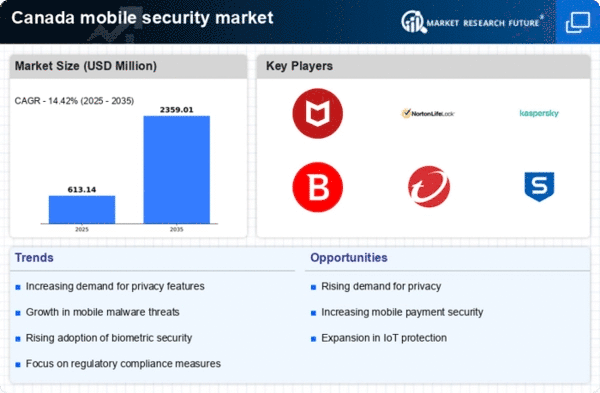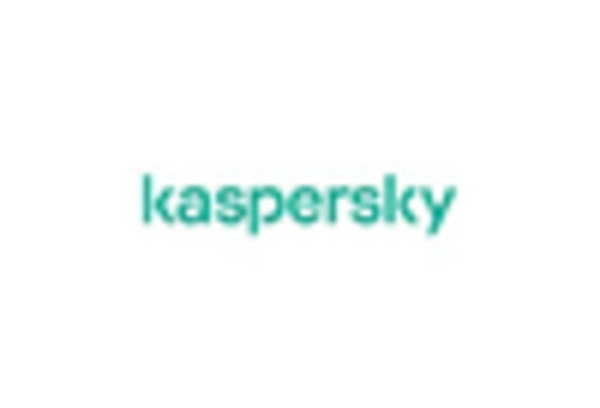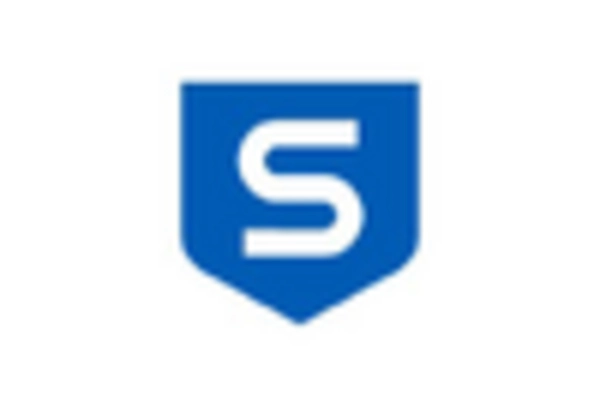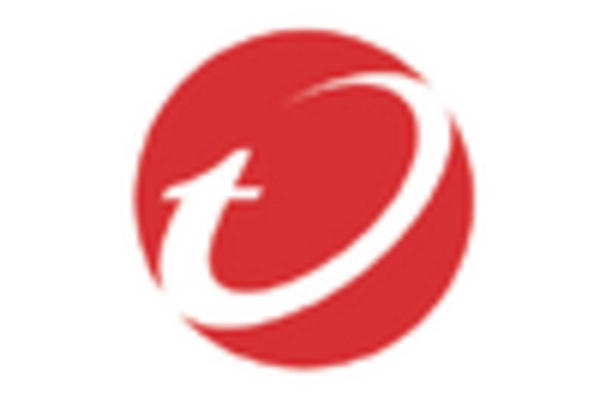Increasing Cyber Threats
The mobile security-software market in Canada is experiencing growth due to the rising incidence of cyber threats. With the proliferation of mobile devices, the attack surface for cybercriminals has expanded significantly. Reports indicate that mobile malware attacks have surged by over 30% in recent years, prompting businesses and individuals to seek robust security solutions. This trend is likely to continue as more sophisticated threats emerge, necessitating advanced protective measures. Consequently, the demand for mobile security software is expected to rise, as organizations prioritize safeguarding sensitive data and maintaining compliance with regulations. The mobile security-software market is thus positioned to benefit from this increasing awareness and urgency surrounding cybersecurity.
Growth of Remote Work Culture
The shift towards remote work in Canada has significantly impacted the mobile security-software market. As employees increasingly access corporate networks from personal devices, the risk of data breaches has escalated. A survey indicated that 60% of Canadian businesses reported security incidents related to remote work. This has prompted organizations to invest in mobile security solutions that can secure endpoints and protect sensitive information. The mobile security-software market is thus adapting to meet the needs of a workforce that demands flexibility while ensuring robust security measures are in place. This trend is expected to continue as remote work becomes a permanent fixture in many sectors.
Consumer Awareness of Data Privacy
There is a growing awareness among Canadian consumers regarding data privacy, which is influencing the mobile security-software market. As individuals become more informed about the risks associated with mobile device usage, they are increasingly seeking security solutions to protect their personal information. Reports suggest that 75% of Canadians express concern about their online privacy, leading to a surge in demand for mobile security applications. This heightened consumer awareness is driving the mobile security-software market to innovate and offer more user-friendly solutions that address privacy concerns. As consumers prioritize their digital safety, the market is likely to see continued growth.
Regulatory Compliance Requirements
In Canada, regulatory frameworks are becoming increasingly stringent, compelling organizations to adopt mobile security software to ensure compliance. The Personal Information Protection and Electronic Documents Act (PIPEDA) mandates that businesses protect personal data, which has led to a heightened focus on mobile security solutions. Companies that fail to comply with these regulations may face substantial fines, which can reach up to $100,000. As a result, the mobile security-software market is witnessing a surge in demand as organizations invest in solutions that not only protect their data but also align with legal requirements. This trend is likely to drive innovation and the development of more comprehensive security offerings.
Technological Advancements in Security Solutions
The mobile security-software market in Canada is benefiting from rapid technological advancements that enhance security capabilities. Innovations such as machine learning and behavioral analytics are being integrated into mobile security solutions, allowing for more proactive threat detection and response. As these technologies evolve, they provide organizations with tools to combat increasingly sophisticated cyber threats. The mobile security-software market is thus positioned to leverage these advancements, offering solutions that not only protect against known threats but also adapt to emerging risks. This trend suggests a promising future for the market as technology continues to evolve and improve security measures.
















